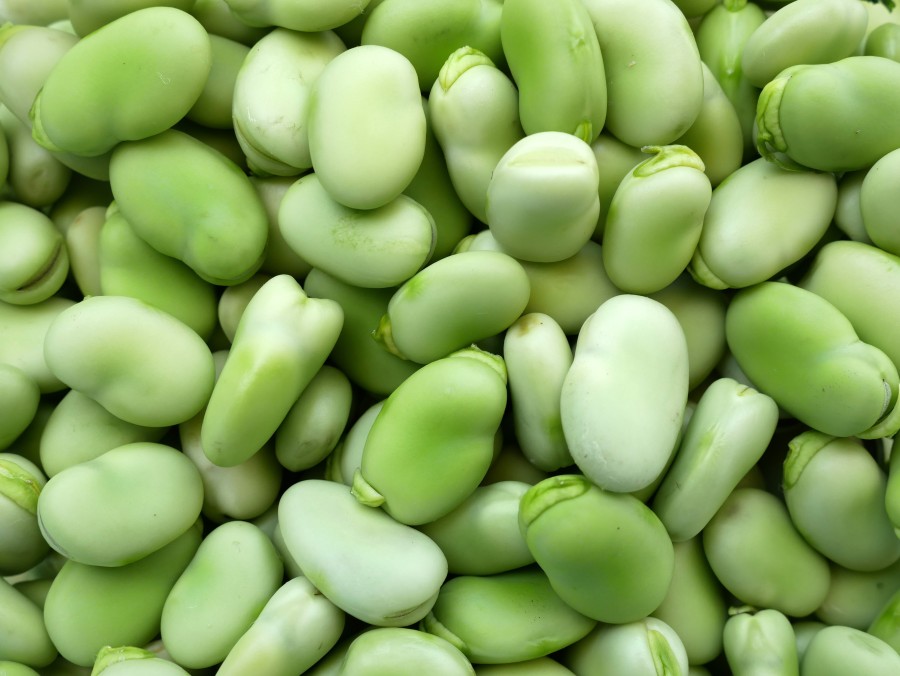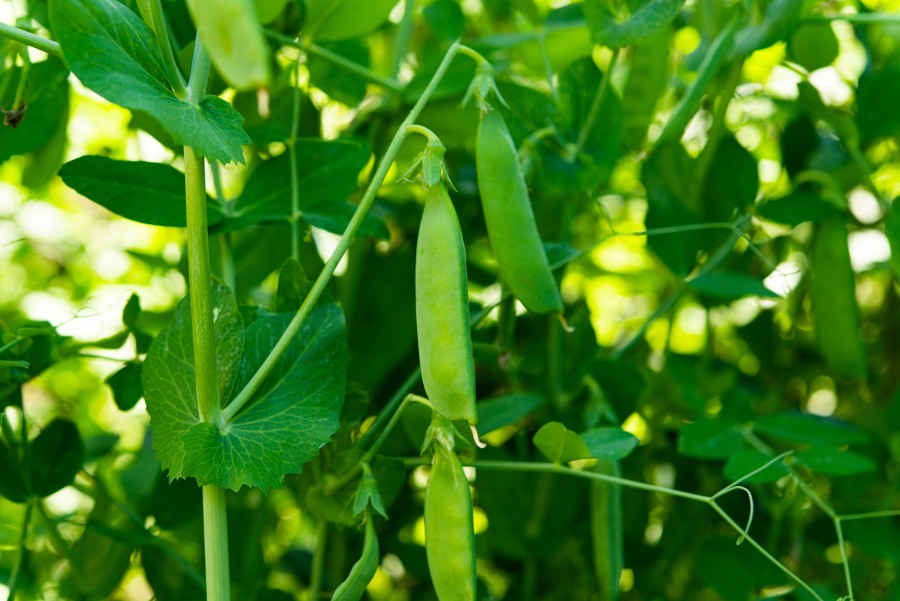
- Industry news
Industry news
- Category news
Category news
- Reports
- Key trends
- Multimedia
- Journal
- Events
- Suppliers
- Home
- Industry news
Industry news
- Category news
Category news
- Reports
- Key trends
- Multimedia
- Events
- Suppliers
Plant-based proteins drive innovation as consumers seek eco-friendly and health-conscious food
Key takeaways
- Consumers increasingly seek protein sources that align with their values around health, the environment, and animal welfare — fueling demand for plant-based, hybrid, and fermentation-derived proteins.
- A versatile protein toolkit emerges: Companies like Cargill and Beneo are developing diverse protein solutions, including pea, faba bean, and mycoprotein.
- Taste and mouthfeel are still top priorities; successful plant-based or hybrid products must replicate the flavor and texture of traditional animal proteins to gain consumer acceptance.

Plant-based ingredients continue to gain traction as the emerging go-to protein sources for food innovators looking for sustainable solutions that will feed the world’s growing population and appeal to health — and planet-conscious consumers. In addition, animal welfare and protection are key components for a growing number of people moving away from animal-based protein.
Plant-based options like faba beans, algae, peas, hemp, legumes, mycoprotein, and pulses are gathering pace, backed by their functional, health, and eco-friendly properties.
Speaking with key players in the protein space, Cargill and Beneo, Food Ingredients First examines some of the most promising protein sources and what solutions are emerging for the companies.
The progression of plant-based proteins
Fréderic Fernandes, product manager functional proteins at Beneo, tells us that the rise in popularity of plant-based protein sources is not only due to their nutrition and health benefits but also their sustainability credentials, as promoted by global organizations like the UN FAO and WHO that support plant-based diets for the health of people and the planet.
“In fact, 76% of consumers globally now expect companies to be transparent about their raw material sources, and 42% of consumers globally say they are actively looking for sustainable alternatives to conventional products. As a result, the sustainability credentials of ingredients are under the spotlight like never before.”
For instance, egg prices have risen worldwide in recent years as avian flu has impacted the poultry and egg sectors, causing supply chain issues, particularly in the US.
“The volatility and price increases in animal products over recent years have made plant-based protein sources even more attractive,” he says.
“In light of developments like this, plant-based alternatives like faba bean protein concentrate can offer producers price stability. As a result, egg replacement is becoming a growing discussion topic among food producers looking to reformulate their recipes with viable alternatives that deliver technical, nutritional, and economic benefits.”
“By taking more of a farm-to-fork approach from sourcing the raw material to producing plant-based ingredients and texturates, Beneo now helps producers by covering a large part of the value chain.”
In practice, this means Beneo’s Meatless range can offer a pre-prepared texturate or semi-finished product for different applications, such as plant-based or hybrid meat, bakery, or dairy solutions.
“Beneo’s plant-based protein offering now also covers extensive parts of the value chain, supporting producers in creating more sustainable and appealing hybrid and vegetarian meat and fish products. Getting closer to a ‘farm to fork’ approach — from sourcing German-farmed, locally processed faba beans to supplying plant-based Meatless texturates — we ensure broad value chain coverage.”
 Plant-based alternatives like faba bean protein concentrate can offer producers price stability.
Plant-based alternatives like faba bean protein concentrate can offer producers price stability.
Consumers want more choice in protein
Cargill doesn’t see a single “silver bullet” protein source as a frontrunner but a general momentum across a broad spectrum — plant-based, fermentation-derived, and hybrid.
Consumers want protein sources that support active lifestyles or balanced nutrition. On the other hand, they also seek to maximize perceived value, viewing their purchases as reflections of their personal values,” Guilhem Jamin, M&DA portfolio solutions director at Cargill, tells Food Ingredients First.
“What excites us most is the acceleration in fermentation-based proteins. For example, through our partnership with Enough, we’ve brought Abunda mycoprotein into our portfolio. This ingredient has a naturally meat-like fibrous texture, is rich in protein and fiber, and can be produced efficiently through fermentation using Cargill’s glucose syrup as a feedstock.”
“Cargill has showcased it (mycoprotein) in applications ranging from Thai-style patties to whole-muscle chicken alternatives and hybrid formats.”
In parallel, Jamin notes that plant-based ingredients such as pea protein continue to gain traction, thanks to their versatility, scalability, and consumer familiarity.
“Together, these solutions (mycoprotein and pea) are creating a protein toolkit that allows us to meet diverse consumer needs, from health-conscious shoppers to climate-driven flexitarians,” he says.
“From a product development standpoint, pea protein has proven itself as a very reliable tool. It delivers solubility, viscosity control, and a neutral taste that formulators can count on. Mycoprotein also stands out because of its natural meat-like texture — it requires less processing to achieve the mouthfeel consumers expect.”
Cargill sees a future where fermentation is used as a technology to enhance plant proteins, improving functionality and sensory performance.
“With nearly a third of global consumers now identifying as flexitarian, this group represents the mainstream. They’re not abandoning animal proteins but are diversifying, seeking solutions that fit their values around health, sustainability, and affordability.”
“Our role is to make sure those products taste great, are culturally relevant, and come at a price point that makes them accessible. That’s why we don’t believe in a one-size-fits-all solution. We’re building a diverse protein toolkit that can flex across markets and consumer needs.”
Jamin also notes that one of the biggest misconceptions remains that alternative proteins mean compromising on taste or indulgence, when in reality, new technologies — from fermentation to advanced texturizers — are closing the sensory gap and allowing the company to deliver products people genuinely enjoy.
 Plant-based ingredients such as pea protein continue to gain traction, thanks to their versatility, scalability, and consumer familiarity.
Plant-based ingredients such as pea protein continue to gain traction, thanks to their versatility, scalability, and consumer familiarity.
Plant-based protein evolution
Fernandes agrees that taste will continue to be the top priority for shoppers in both plant-based and hybrid solutions.
“Over two-thirds of consumers want their protein to deliver on taste and texture. Beneo’s research has shown that for four in 10 of those who are not as open to trying hybrid meat products, a key limitation is their uncertainty of how these products will taste. If the hybrid meat or plant-based product doesn’t offer an appealing flavor, aroma, or meat-like texture, consumers won’t buy it twice, so it is essential to get this right.”
“At the same time, with global warming threatening ecosystems, worldwide there is a growing need for a sustainable diet that, according to FAO/WHO, must promote health and well-being, and at the same time have a low environmental impact.”
“As a result, plant-based nutrition isn’t just a ‘nice to have,’ but an essential part of our global food program. Bearing this in mind, sustainable food consumption looks set to expand its reach and influence on the supermarket shelf for the foreseeable future,” he concludes.











